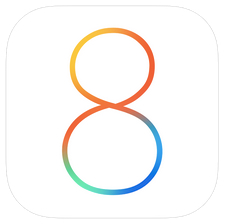 As I combed through different AUPs (Acceptable Use Policies), I found that nearly every one of them could be categorized in two ways – 1) Founded on the word “no,” and 2) LONG. Like, really long. Like, “click here if you’ve read the terms of agreement” long. I couldn’t help but laugh when I read one author’s (Steve Taffee) comparison to AUPs nearing the length of Martin Luther’s 95 Theses.
As I combed through different AUPs (Acceptable Use Policies), I found that nearly every one of them could be categorized in two ways – 1) Founded on the word “no,” and 2) LONG. Like, really long. Like, “click here if you’ve read the terms of agreement” long. I couldn’t help but laugh when I read one author’s (Steve Taffee) comparison to AUPs nearing the length of Martin Luther’s 95 Theses.
In describing AUPs, Mr. Taffee challenged the idea of long-winded coverage of every scenario under the sun and advocated for a much shorter, more intentional, EMPOWERED Use Policy (EUP). This idea for the EUP is one that consists of only eight words – and none of them are “no.”
Be mindful, act wisely, and learn from mistakes.
Simple. Genius.
When using technology, leading students to be mindful asks them to think. You (and they) must think about what you are doing before you do it. Breaking down the phrase, “be mindful” means to be full of mind. It means to process internally before acting externally. Being mindful is the first step to being a true digital citizen. Being mindful means processing how any action online could impact yourself or others. It demands learning to think outside of your own world. Think broadly…first.
After you have been mindful to the options of how you could use your technology, act wisely. This is where the internal becomes external. What is wisdom? Wisdom is defined as the quality of having experience, knowledge, and good judgment. The Bible says, “The fear of the Lord is the beginning of knowledge; fools despise wisdom and instruction,” (Proverbs 1:7). It continues with, “How much better to get wisdom than gold! To get understanding is to be chosen rather than silver,” (Proverbs 16:16). Acting wisely is not a natural tendency. It is only by the grace of God that we can choose anything that is good, technology or not. To truly be wise in action we must understand that every tendency we’ll have will be to rebel from what God asks of us. This is called sin. In every temptation online, whether to play games, chat with friends while the teacher is leading you, or just sit there staring at the screen, pray that God will develop wisdom in you. “If any of you lacks wisdom, let him ask God, who gives generously to all without reproach, and it will be given him,” (James 1:5).
Even in the event that you have been mindful and acted wisely, there are almost certainly things that you wish you have have done differently. This is called being reflective. Being reflective means learning from not only mistakes, but also confirming what went well to produce the outcome achieved. What I love about the phrase “learn from mistakes,” is not what is says, but what it omits. Mr. Taffee states that, “One can and should learn from the mistakes of others as well. This is why I suggest the wording of “learning from mistakes” rather than “learning from your mistakes,” (The AUP of the Future, Steve Taffee). Learning from mistakes, in general, is the key to honing your future decision-making skills. Learn. Don’t just react again as if nothing ever went right or wrong. Learn.
Be mindful, act wisely, and learn from mistakes.
The simplicity of these eight words is profound. The Internet is just about everywhere. Access to the web is at unprecedented levels. As students engage in more and more technology, it is our hope to empower them to use sound judgment and pursue what is good and right. These eight words are something every student can know and our staff can continually speak to. In Micah 6:8, the Bible says that we are to, “do justly, love mercy, walk humbly with your (our) God.” This is what every student should measure and pursue.
Let’s not overcomplicate what should not be. Be mindful, act wisely, and learn from mistakes.
In Service,
Mike Allen
Head of School
Evansville Christian School